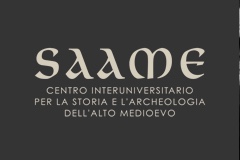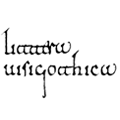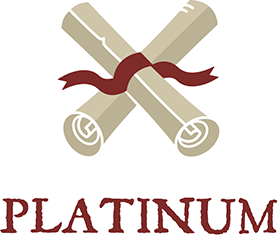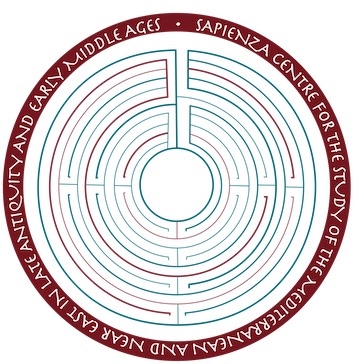Cooperation
DigiLab

- The DigiLab Research Center of Sapienza University of Rome was created to strengthen interdisciplinary scientific research in the field of heritage and cultural production, the management of particularly complex instruments and laboratories in the sector of digital technologies for culture, the communication and enhancement of cultural heritage.
- Website: https://digilab.uniroma1.it
_________________________________
Consortium GARR
THE ITALIAN RESEARCH AND EDUCATION NETWORK
Ultra-fast connectivity for data and knowledge sharing
Website: https://www.garr.it/en
___________________________
LAD: Laboratorio di Archeologia Digitale alla Sapienza

____________________
Sapienza Centre for the Study of the Mediterranean and Near East in Late Antiquity and Early Middle Ages
The Sapienza Centre for the Study of the Mediterranean and Near East in Late Antiquity and Early Middle Ageses initially set up as a laboratory — aims to provide a forum (both physical and virtual) for the critical study of Late Antiquity (roughly defined as the 3rd-8th centuries, but taking into account specific experiences of individual cultural traditions), investigated according to different methodological perspectives and different research skills.
___________________
PRIN 2017: Greek and Latin Literary Papyri from Graeco-Roman and Late Antique Fayum (4th BC – 7th AD): Texts, Contexts, Readers
P.I. Prof. Lucio Del Corso (Università di Cassino e del Lazio Meridionale)
Partner: Prof. Francesca Maltomini (Istituto Papirologico “G. Vitelli”, Università di Firenze); Prof. Serena Perrone (Università di Genova); Prof. Nicola Reggiani (Università di Parma)
Università di Cassino e del Lazio Meridionale – Master INPS Executive in “European Projects Planning”
Antonella Ghignoli, as PI of the ERC Advanced Grant NOTAE, hold courses on “Excellent science: funding schemes of the European Research Council (ERC)” in four editions of the Master INPS Executive in “European Projects Planning. Project design – Management – Reporting” (Europrogettazione. Project design – Management – Rendicontazione) organized by the Università degli studi di Cassino e del Lazio meridionale (in the academic years 2019, 2020, 2021, 2022).
______________
Related initiatives
 Papyri.info
Papyri.info
Papyri.info has two primary components. The Papyrological Navigator (PN) supports searching, browsing, and aggregation of ancient papyrological documents and related materials; the Papyrological Editor (PE) enables multi-author, version controlled, peer reviewed scholarly curation of papyrological texts, translations, commentary, scholarly metadata, institutional catalog records, bibliography, and images.
Website: papyri.info


 Trismegistos
Trismegistos
Trismegistos was conceived in 2004 when Mark Depauw was granted a Sofja Kovalevskaja Award of the Alexander von Humboldt-Stiftung to set up his own research team at a German university, in this case Cologne. For more details and to join the Website: Trismegistos
ERC Project EVWRIT – Everyday Writing in Graeco-Roman and Late Antique Egypt (I – VIII AD)
A Socio-Semiotic Study of Communicative Variation.
This project, funded by the European Research Council (2018 – 2023), aims to generate a paradigm shift in the understanding of Graeco-Roman and Late Antique communication. Non-literary, ‘documentary’ texts from Ancient Egypt such as letters, petitions and contracts have provided and continue to provide a key witness for our knowledge of the administration, education, economy, etc. of Ancient Egypt.
Website: www.evwrit.ugent.be
____________________________
 Centro Interuniversitario per la Storia e l’Archeologia dell’Alto Medioevo
Centro Interuniversitario per la Storia e l’Archeologia dell’Alto Medioevo
The Inter-university Center for History and Archeology of the early Middle Ages, founded in 2005 by Riccardo Francovich, Stefano Gasparri and Cristina La Rocca, aims at bringing together, at least in Italy, the research activities of the early medievalists promoting and improving the cooperation between archeology and history.
Website: http://saame.it
 Littera Visigothica
Littera Visigothica
The project Littera Visigothica is the brainchild of Ainoa Castro Correa and started in September 2013. It aims to share her current work, as a researcher and teacher, on medieval manuscript sources written in Visigothic script, the first writing system used in the medieval Iberian Peninsula. This includes its characteristics, evolution, graphic testimonies – charters, cartularies, and codices – and their historical and cultural context.
Website: http://www.litteravisigothica.com/
 ERC project PLATINUM – Papyri and LAtin Texts: INsights and Updated Methodologies. Towards a philological, literary, and historical approach to Latin papyri
ERC project PLATINUM – Papyri and LAtin Texts: INsights and Updated Methodologies. Towards a philological, literary, and historical approach to Latin papyri
The aim of PLATINUM is to scrutinize Latin texts on papyrus from several points of view in order to highlight their substantial contribution to our knowledge of innovations in ancient Roman literature, language, history, and society, especially in the multilingual and multicultural contexts of the Eastern part of the Empire between the 1st century B.C. and 8th century A.D. The first phase of the project will consist in assembling, updating and publishing critical editions, in order to present a new and more accurate corpus of Latin papyri on an easily accessible online platform. The second phase will be focused on providing the texts with a specific, pluridisciplinary commentary that gives new insights on Roman culture.
Website: https://platinum-erc.it/
__________________
Reuniting fragments, identifying scribes and characterizing scripts: the Digital palaeography of Greek and Coptic papyri
This four-years project funded by the Swiss National Science Foundation (SNF) and hosted in the University of Basel started on September 1st, 2018. It aims to lay the foundation for an online interface through which papyrologists would be able to look for similar – or identical – handwritings to a given papyrus and typical samples of writings for a given period.
Current Website: https://altegeschichte.philhist.unibas.ch/de/digpaleo/
Website under construction: http://d-scribes.philhist.unibas.ch


